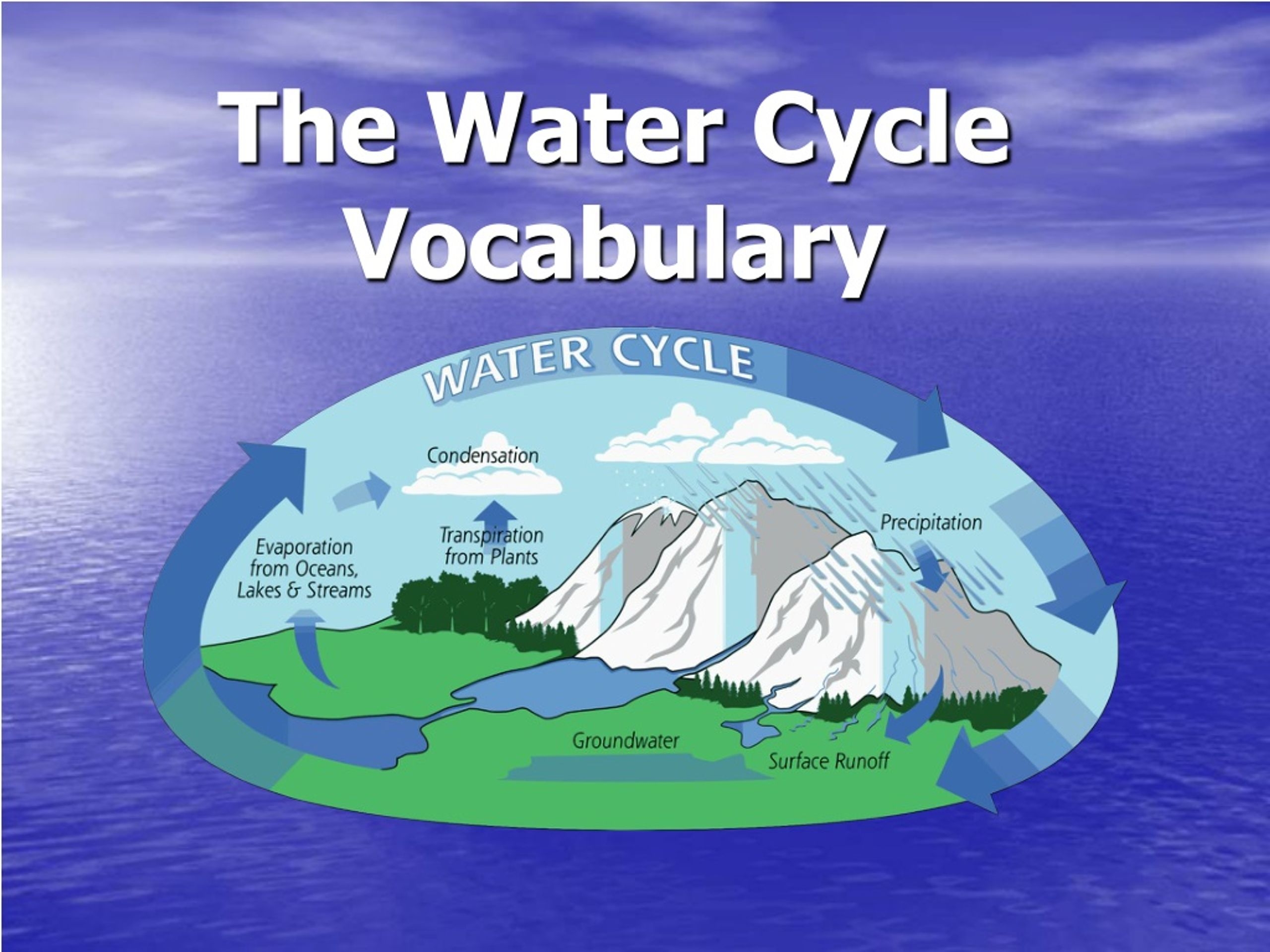Water is essential for life on Earth, and understanding the water cycle is crucial to understanding how this precious resource moves through our planet. The water cycle, also known as the hydrological cycle, describes the continuous movement of water on, above, and below the surface of the Earth.
By learning the vocabulary associated with the water cycle, we can better comprehend the processes that govern the distribution and availability of water in different regions of the world. Let’s explore some key terms related to the water cycle and their significance.
Water Cycle Vocabulary
1. Evaporation: This is the process by which water is converted from its liquid state to vapor or gas and rises into the atmosphere. Evaporation occurs primarily from oceans, lakes, and rivers, driven by the heat of the sun.
2. Condensation: After water vapor rises into the atmosphere, it cools and condenses to form clouds. Condensation is crucial for the formation of precipitation, such as rain, snow, sleet, or hail.
3. Precipitation: This is the release of water from the atmosphere in the form of rain, snow, hail, or sleet. Precipitation replenishes the Earth’s water sources, nourishing plants and sustaining ecosystems.
4. Runoff: When precipitation falls on land, it either infiltrates into the ground or flows over the surface as runoff. Runoff plays a vital role in transporting water to rivers, lakes, and oceans, where it can eventually evaporate back into the atmosphere.
5. Groundwater: This is the water that is stored beneath the Earth’s surface in porous rock layers called aquifers. Groundwater is a critical source of drinking water for many communities and sustains ecosystems during dry periods.
Understanding these and other water cycle vocabulary terms can help us appreciate the interconnectedness of Earth’s water systems and the importance of conserving this precious resource. By taking steps to protect water sources and reduce pollution, we can ensure a sustainable water supply for future generations.
In conclusion, familiarizing ourselves with water cycle vocabulary is key to understanding the processes that regulate the distribution and availability of water on our planet. By incorporating these terms into our everyday conversations and educational materials, we can raise awareness about the importance of water conservation and stewardship.
